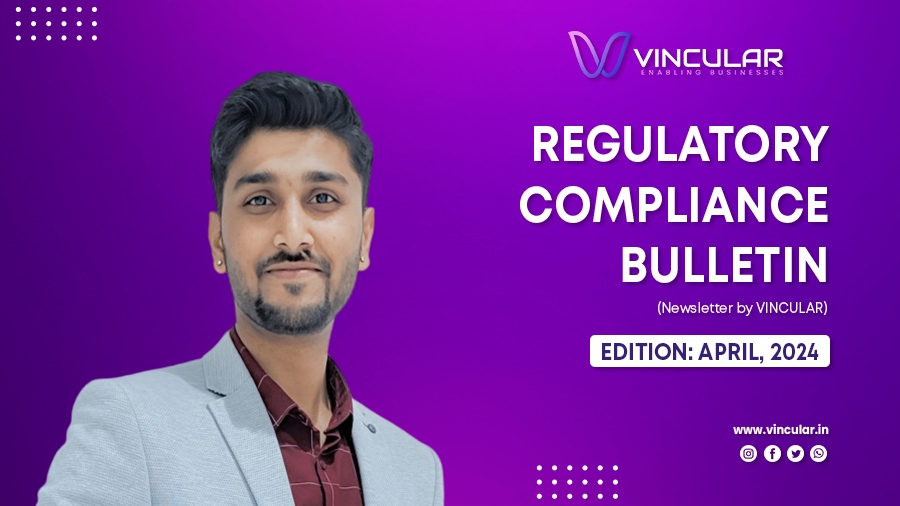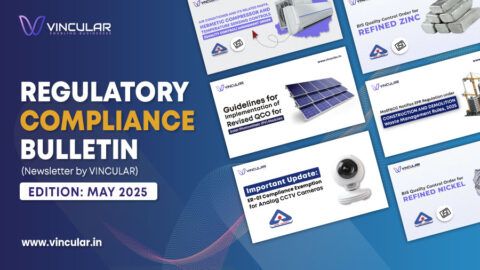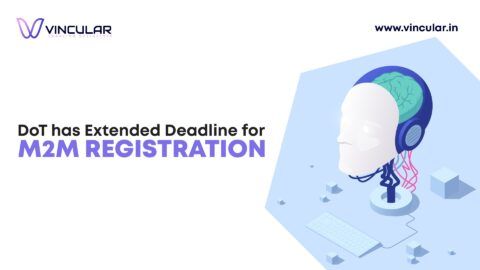ISI
DPIIT Mandates ISI Mark for Copper Products
In a move to enhance safety standards, the Department for Promotion of Industry and Internal Trade (DPIIT) has issued a crucial order outlining the mandatory requirement of the ISI Mark for various copper products which are as follows.
- Copper Wire Rods for Electrical Applications
- Copper Rods and Bars for Electrical Purposes
- Copper strip for electrical purposes
- Copper rods and bars for general engineering purposes
- Solid-drawn copper and copper alloy tubes for condensers and heat exchangers
- Solid-drawn copper tubes for general engineering purposes
- Copper Tubes for plumbing- Specification
- Wrought Copper Tubes for Refrigeration and Air Conditioning Purposes
- Copper wires for general engineering purposes
This order takes effect from 19th October 2024, precisely six months from the date of its publication in the Official Gazette.
The rollout dates for Small and Micro Enterprises (SMEs) are as follows:
- Small Enterprises: Effective from 19th January 2025
- Micro Enterprises: Effective from 19th April 2025
Access the official notification from here.
BIS-CRS
STQC: Phase 7: Additional requirement for CCTV Camera under CRO 2021
Ministry confirms that it will be mandatory for all the CCTV camera product categories to get STQC test reports from a BIS-recognized lab and it will be a pre-requisite for obtaining a license to use Standard Mark for the product.
The said notification shall be mandatory after 6 months from the date of releasing the gazette notification. Hence, said order will come into effect from 09th October 2024.
The official notification can be referred from here.
TEC
Extension in MTCTE: 4-month extension for 10 products under phases 3 & 4
TEC has notified the extension of mandatory certification for 10 products under MTCTE phases 3 and IV. The new effective date now stands at 1st August 2024 for the below product categories:
| S. No. | Product/ ER | Notified in Phase |
| 1. | Base station for cellular network | Phase-3 |
| 2. | Smart Electricity Meter | Phase-3 |
| 3. | SIM | Phase-4 |
| 4. | Mobile Radio Trunking System | Phase-4 |
| 5. | VHF UHF Radio System Equipment | Phase-4 |
| 6. | PTP PMP Microwave Fixed Radio System | Phase-4 |
| 7. | LAN Switch | Phase-4 |
| 8. | Router | Phase-4 |
| 9. | IP Security Equipment | Phase-4 |
| 10. | Satellite Communication Equipment | Phase-4 |
Additionally, the last date of acceptance of technical test reports issued by ILAC-accredited labs from non-border sharing countries has been extended to 31st July 2024.
The official notification can be accessed here.
Exemption on Parameters/ Interfaces of applicable ERs under MTCTE
TEC has exempted the Parameters/ Interfaces to all applicable ERs under MTCTE up to 30th June 2024, which are mentioned as follows:
- 5G NR (FR1).
- 5G NR- FR1 & FR-2 interworking with other radios.
- 5G Nr (FR2).
Official Notification from the regulator can be accessed here.
Acceptance of NABL Test Reports Extended by Four Months
TEC has extended the final acceptance date of NABL-accredited lab test reports for Optical Fibre (Single Mode)/ Optical Fibre Cable by four months. The reports will be accepted till 31st August 2024.
As earlier notified other clauses will remain the same such as:
- The parameters are mentioned in the ER of Optical Fibre and Optical Fibre Cable, if those parameters are not covered under the test report, the respective parameters shall be treated as exempted for which a provisional certificate will be issued.
- The test report which shall be submitted must not be older than 5 years from the date of issue.
- The witness testing of registered MSMEs is allowed till 31st December 2024.
- Also, if the SAC/TSEC certificate is issued against TEC Generic Requirements for Optical Fiber/ Cable will be acceptable, in such case a provisional certificate will be issued.
Official notification from the regulator can be accessed here.
Change in Mandatory Dates of Certification for the COMSEC Scheme
NCCS (National Centre for Communication Security) has modified the mandatory security certification dates under the ComSec Scheme.
- 1st July 2024 is the effective date of mandatory security certification for IP Router and Wi-Fi CPE which have not undergone technical testing under MTCTE yet.
- 1st October 2024 is the effective date of mandatory security certification for IP Router and Wi-Fi CPE which are already tested for technical parameters. Such devices that are already being sold in the Indian market might have to change their hardware or software versions to comply with Security Requirements.
Note that till the mandatory date, applicants may get their product certified by applying through the VSC route. In this case, the product will be tested exactly as per ComSec requirements, however, a government fee will not be charged.
Official Notification from the regulator can be accessed here.
Waste Management
CPCB Extends Deadline for E-Waste Recycling Targets
The CPCB announced recently that the deadline for recycling e-waste has been extended until April 30, 2024, which was originally set for March 31, 2024.
Here are some key points from the notification:
- All producers must fulfil their Extended Producer Responsibility (EPR) by purchasing an equivalent quantity of EPR Certificates from registered recyclers.
- Certificates generated after 30 April 2024 (deadline) will not be considered, and Environmental Compensation (EC) Charges will apply.
Let’s work together for a sustainable future by responsibly managing e-waste.
BEE
Revision in Star labelling criteria for Solar Photovoltaic Modules
In a recent notification dated 21st March 2024, BEE has issued a notification for all the manufacturers/permittee of Solar Photovoltaic Modules (also called solar panels) w.r.t energy efficiency criteria. Here’s a comparison of the old and new ratings:
Existing Star labelling criteria for Solar PV modules
| Star Rating | Effective efficiency ɳeff (%) |
| 1 Star | >=17% & <=18% |
| 2 Star | >18% & <=20% |
| 3 Star | >20% &<=21% |
| 4 Star | >21% &<=22% |
| 5 Star | >22% |
Revised Star labelling criteria for Solar PV modules
| Star Rating | Effective efficiency ɳeff (%) |
| 1 Star | >=17% & <=18% |
| 2 Star | >18% & <=19% |
| 3 Star | >19% &<=20% |
| 4 Star | >20% &<=21% |
| 5 Star | >21% |
For more information, you can check the official notification here.
Voice Compliance
Extension of the registration period for M2M and WPAN/ WLAN registration
The Government of India (GoI) has taken into consideration the requests raised by various industry associations such as COAI, CII and FICCI for extending the timeline for registration of the unregistered entities that are providing Machine-to-Machine (M2M) services and/ or WPAN/WLAN Connectivity for M2M Services.
The timeline has been extended up till June 30, 2024, as mentioned in the recent circular by the Department of Telecommunications (DoT). Earlier the registration was to be completed by the end of March 2024.
DoT has directed all the authorized telecom licensees to inform all the entities who have been utilizing telecom resources (including M2M SIMs) from them to register on the SaralSanchar portal by 30th June 2024 failing which shall lead to discontinuation of the telecom resources.
In addition, all the details about the registration shall have to be obtained and recorded by the telecom service providers of the entities.
The guidelines for M2M Service Providers and WPAN/WLAN Connectivity Providers have been rolled out by DoT for nearly 2 years now. Comprehending the growth of this sector, the government is keen to see more developments in this area of the industry.
TRAI issues directions to improve Quality of Service (QoS)
The Telecom Regulatory Authority of India (TRAI) has come up with some significant steps to enhance service quality and address the persistent issue of call drops where phone calls abruptly terminate before completion.
To curb this issue, TRAI is requiring telecom companies to provide detailed information about each mobile tower (base station), including its precise location, the technology it employs (such as 2G, 3G, 4G, or the emerging 5G), the date it was commissioned, and the type of connectivity it utilizes. These particulars must be submitted within 21 days following the conclusion of each quarter in the prescribed format through the portal (https://dcr.trai.gov.in/), facilitating a more prompt response to service-related concerns.
By imposing stricter reporting standards, TRAI aims to elevate service quality and effectively tackle issues like call drops within the telecom sector.
Stay tuned as TRAI continues its efforts to pave the way for improved telecommunications services throughout India.
WPC
Review & Revise of National Frequency Allocation Plan (NFAP)-2022
1. A committee has been constituted with the approval of the competent authority under the chairmanship of the Wireless Advisor to the Government of India to review and amend the National Frequency Allocation Plan (NFAP)-2022.
2. The constitution of the Committee is as follows:
- Working Group-1: For frequency bands up to 1GHz
- Working Group-2: For frequency bands 1GHz to 6GHz
- Working Group-3: For frequency bands beyond 6GHz
3. The Committee will review/revise NFAP-2022 taking into decision of the World Radiocommunication Conference 2023, national requirements, latest developments in radio communication technologies, etc.
4. The Committee will consider the proposals received from all stakeholders while reviewing and revising the NFAP-2022.
Guidelines to Establish and Operate Spectrum Regulatory Sandbox/Wireless Test Zones (WiTe Zones)
1. Purpose: The guidelines aim to facilitate the testing of wireless products and technologies for research, development, and experimentation within specified spectrum bands.
The focus is on promoting R&D activities, outdoor testing, and supporting the Make in India initiative for wireless products.
2. Eligible Entities for Establishment of WiTe Zones:
- National Academic or Research institutes (e.g., Universities, Technical Institutions, CDoT, CDAC, IITs, ITI, BEL, ECIL, SAMEER, etc.)
- R&D Labs
- Central/State Government/UTs departments or their PSUs
- Technology Parks
- Telecom Service Providers (TSPs)
- Incubators
- Industry partners
- Original Equipment Manufacturers (OEMs)
3. License:
- Prospective entities must apply for a WiTe zone license.
- The Department of Telecommunications (DoT) or Wireless Planning & Coordination (WPC) will review proposals and issue licenses.
- The license is valid for 10 years, renewable in multiples of 5 years.
4. Fees:
- No fee is required for establishing WiTe zones.
- Users of the WiTe Zones facility must pay an annual fee of Rs. 1000/- per spectrum band via the Saral Sanchar portal.
5. Spectrum Use Authorization for WiTe Zones Categories:
Two categories: Category-I and Category-II.
- Category-I: Allows experimentation/testing in spectrum bands not yet assigned to any user in the area. Tests/experiments are permitted until those bands are allocated to users.
- Category II: These zones enable testing and experimentation in interior or uninhabited areas within assigned spectrum bands. These bands include IMT, satellite, and broadcasting bands.
Subject to the following conditions:
| S. No. | Type of Band testing | Testing Zone size (indicative) |
| 1 | HF (3-30 MHz) | 10 X 10 km |
| 2 | VHF (30-300 MHz) | 5X5 km |
| 3 | UHF (300 Mhz to to 1 GHz) | |
| 4 | MW Bands (1-10 GHz) | |
| 5 | MM wave bands (10-100 GHz) | 1.5X1.5 km |
| 6 | > 100 GHz |
6. Users of WiTe Zones:
- Indian entities can utilize WiTe Zones.
- Licensees of WiTe Zones can charge a nominal fee to users who wish to test their products within the zone.
7. Additional Conditions:
- Details of approved WiTe Zones are published on a government website.
- Entities with approved WiTe Zones must nominate a coordinator to liaise with authorities on spectrum-related issues.
- Coordinators ensure that test facilities at the WiTe Zone do not adversely affect existing radio communication services and promptly address any issues.
- Licensed services must not be negatively impacted, and steps must be taken to prevent interference.
These regulatory reforms aim to foster innovation in the telecom industry and encourage cutting-edge research and experimentation.
Simplification in the procedure for obtaining Experimental Licence for 100 5G Use Case Labs
The Department of Telecommunications has awarded ‘100 5G Use Case Labs to educational institutions across the country.
These labs will be using 5G frequency bands for carrying out various experiments and testing use cases and need to obtain an Experimental (non-radiating) category of license from WPC Wing to ensure interference-free operations to licensed Telecom Service Providers.
To simplify the grant of experimental license for these labs, a specific Approval Type, known as ‘Experimental License for 100 5G Use Case Labs, has been introduced on the National Single Window System (NSWS) Portal.
The NSWS portal redirects the applicant to the Saralsanchar Portal. In this, the application process is simplified wherein technical specifications and schematic details are auto-filled.
Applicants need to fill in only the details of the institute address, and authorized person and pay the requisite fees of Rs 5000 for one year. The license can be downloaded instantaneously, making the entire process very simple.
FSSAI
FSSAI Directs E-commerce to Stop Labelling Malt-Based Drinks as ‘Health’ or ‘Energy’ Drinks
Recent scrutiny by the Food Safety and Standards Authority of India (FSSAI) and the National Commission for Protection of Child Rights (NCPCR) highlights the mislabelling of certain food products on e-commerce platforms, particularly those falling under the classification of ‘Proprietary Food’, such as Dairy Beverage Mix, Cereal Beverage Mix, or Malt Beverage Mix.
FSSAI’s Clarification:
The FSSAI clarifies that the term ‘Energy Drink’ is permitted for products licensed under specific regulations, primarily focusing on carbonated and non-carbonated water-based flavoured drinks.
However, ‘Health drink’ is not defined or standardized under the FSS Act 2006 or any associated rules/regulations. Therefore, for transparency and consumer clarity, all e-commerce Food Business Operators (FBO) are advised to adhere to these regulations by refraining from categorising such products under ‘Health Drinks/Energy Drinks’.
NCPCR’s Recommendations:
The NCPCR echoes this sentiment, emphasising that the term ‘health drink’ finds no mention in the Food Safety and Standards Act 2006. They have urged the Department of Consumer Affairs of all states and Union Territories to ensure that no drinks or beverages, including popular products like Bournvita, are sold under the misleading category of ‘health drink’.
Additionally, they have requested the Ministry of Commerce and Industry to direct e-commerce companies to rectify the categorisation of these products on their platforms.
Conclusion:
In conclusion, the collaborative efforts of regulatory bodies like FSSAI and NCPCR aim to safeguard consumer interests by ensuring accurate categorization of food products and preventing misleading information that could impact consumer choices, especially concerning the health of children.
You refer to the official notification from here.
CDSCO
Omission of Glyceryl Trinitrate and Isosorbide Dinitrate from Schedule P1
The Ministry of Health and Family Welfare has recently announced a significant amendment to the Drugs Rules of 1945. Specifically, they have made changes under the section titled “PACK SIZES OF DRUGS” in Schedule P1 of the principal rules. The two drugs, “Glyceryl Trinitrate” and “Isosorbide Dinitrate,” have been removed from this list.
This move is aimed at improving regulations related to drug packaging sizes and certain medications mentioned in Schedule P1. It underscores the government’s commitment to ensuring the safety and efficacy of pharmaceutical products available in the market.
Access the official notification from here.
Vincular’s Corner
Webinar conducted on STQC & DPDP/ISO certification requirements
VINCULAR recently hosted a captivating session focusing on Security Awareness, specifically delving into MeitY’s STQC certification for CCTV products and the intricacies of Data Protection and Privacy Act/ISO certification.
The event featured distinguished guest speakers: Mr Kalyanaraman Seshadri., a seasoned Senior Security Executive, and Mr Appurv Bhatia, an expert Practice Head of Data Protection & Security.
Throughout the session, attendees gained a wealth of knowledge as the speakers shared invaluable insights into the rigorous requirements of STQC testing, emphasising critical facets of Network Security.
Moreover, they offered a concise yet comprehensive overview of the Data Protection and Privacy Act, underscoring its pivotal role in safeguarding sensitive data. Furthermore, participants gained practical insights into the significance of ISO certification, essential for ensuring compliance with global standards.
Overall, the session proved to be highly informative and engaging, leaving participants with a deeper understanding of security protocols and STQC certification requirements.
Webinar on BEE’s Standard and Labeling Scheme
Vincular organised a webinar on “Understanding Energy Efficiency Regulations in India”. With an enthusiastic turnout of 50 participants, the event surpassed all expectations.
Webinar Agenda’s are:
- Energy Efficiency in India
- Standard and Labeling Scheme
- Impacted Appliances
- BEE Certification Process
- Interesting Compliance Facts
- Solar Progress in India
If you missed the live event or want to revisit the valuable content, you can access and share the webinar recording from the below link:
YouTube: https://lnkd.in/gZcKAv2U
SharePoint: https://lnkd.in/gjgz4bB8
Stay Updated, Stay Compliant – Subscribe to our Newsletter Now!
Whether it’s important compliance notifications or changes in policies and regulations, we’ve got it covered.
Get your monthly dose of vital updates by subscribing to our LinkedIn Newsletter or WhatsApp Channel. You can also, watch our Publication Space to stay updated.
Moreover, for regulatory compliance services like TEC Certification, ISI Certification, BIS Registration, BEE Registration, WPC/Wireless Approval, Waste Management, Legal Metrology, CDSCO Certification, etc. Kindly, reach out to us at info@vincular.in or contact us at +91-6395619806




